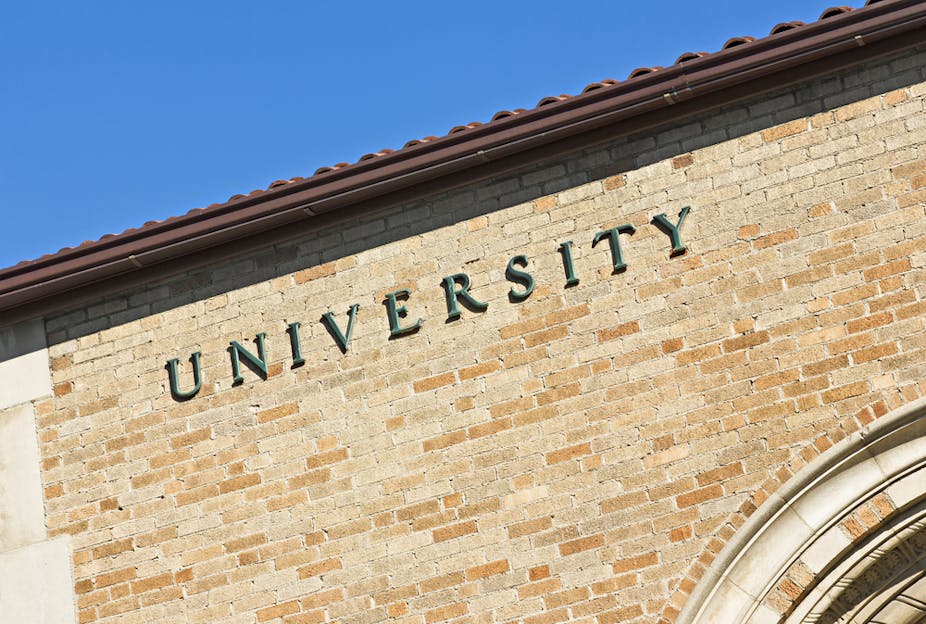Universities are under strain. The outgoing chancellor of Oxford University, Andrew Hamilton has said that politicians risk throwing away the “jewel in the crown”. In his final speech in the role, he warned: “I can only emphasise that of all the false economies that might be available to ministers, few could be more mistaken than cutting support for universities and their research.”
In this context, universities need to be thinking about widening their engagement with the public. The sector needs to think what it can offer to the average taxpayer, using the breadth of its expertise to be a resource for people’s everyday lives. It should do this not in terms of looking for new revenue streams but for free, not motivated by a quick financial return, so that more of the population can see and feel the benefits of a funded university education system.
Outreach isn’t new but it’s patchy and mixed in terms of its purpose, motivations and impact. There’s an established tradition of offering pro-bono legal advice in many universities. This is a good model in itself – in opening up to the general public – but it tends to be based primarily on self-interest and the needs of programmes to deliver practical experience to students.
Outreach generally refers to work in schools and colleges, building bridges and knowledge to help young people onto degree courses, or offering adult learning courses. Research relating to local issues among disadvantaged groups will often be designated by universities as “community” projects, but it’s questionable whether the communities involved see benefits themselves and whether these benefits privilege only a few.
There are impressive pockets of volunteering. UCL reports that more than 1,700 students are involved in voluntary projects each year – a tremendous achievement. The Joseph Rowntree Foundation estimates that around three-quarters of all universities offer arts outreach activities with their communities, especially targeting disadvantaged groups.
In addition, universities should be opening up as an active participant and equal partner in the making and development of the communities of which they are a part. There is much more that universities can offer to the public that would make a difference to their lives and this could help change the relationship and perception of the sector from a narrow channel of specialist research and activities, into a genuine resource for communities.
Not limited to law and enterprise
We could help people with their challenges around marketing or branding, or investment strategies overseas. We could help to stage a community event such as a music or theatre production, make a film or other community media projects, and promote greater financial awareness or just support health and well-being. There’s the opportunity to provide an injection of new ideas from both academics and students acting as participants and observers. Reaching out into the community and inviting the public onto campus will create new perspectives on challenges, allowing academics and students to act as a useful sounding board on a real-world problems.
The advice offered could be thought-provoking rather than prescriptive, but act as the oil to make communities work better, help deal with problems more easily and be more active or creative. After all, if local business and society can prosper, then the university will directly and indirectly benefit.
The engagement would not be intended to generate income through consultancy, but rather to allow others with broad knowledge to offer insights and motivation from a different, informed perspective.
Boosting employability
Pro-bono offerings by staff and students will be increasingly important for developing graduate employability skills that will help bridge the need for employment. Soft skills training has become the new norm in universities, but questions remain over how much difference to student capabilities – or employer attitudes to graduates – the recent push on employability has really made. We need to move on from skills development and bring in new ideas.
There’s evidence from schemes such as the Science Shop, a brokering service run by Queen’s University Belfast and the University of Ulster, of how it is possible to link up community organisations with students looking for projects to work on.
At Brunel University London we are just beginning to pilot our own scheme. We’re starting small, initially sticking to safe territory with free legal advice that enhances existing pro-bono activities. But the aim is to have a solid basis for extending the offering across the colleges, getting arts, humanities and social sciences involved.
We need more examples of what works and how in order to make widening engagement more of a sector-wide issue and not only the ambition of a few. That means universities must be willing to take a chance, to make an investment of resources, and to share what they learn with others. This should become the new norm and no longer the exception.

